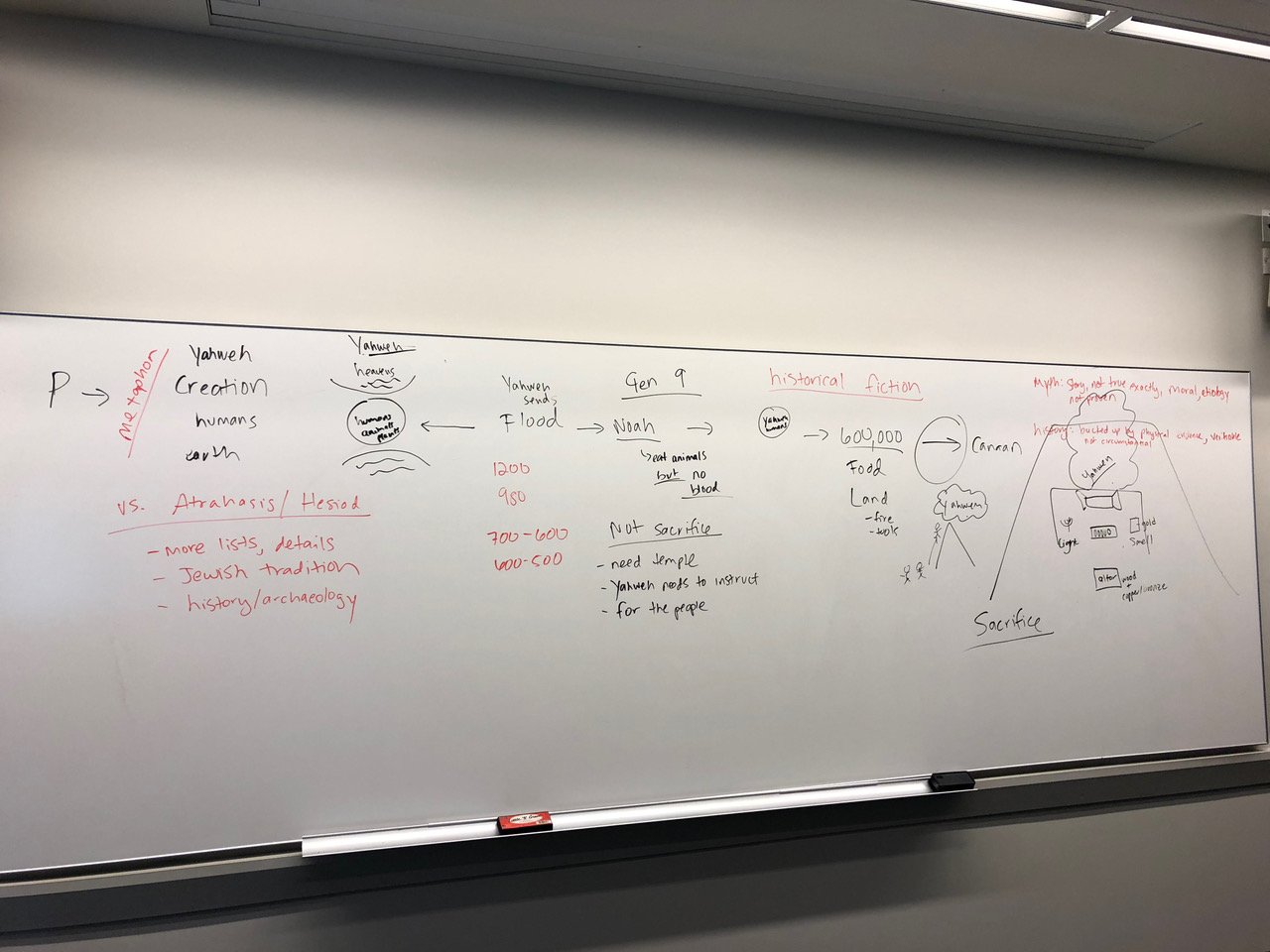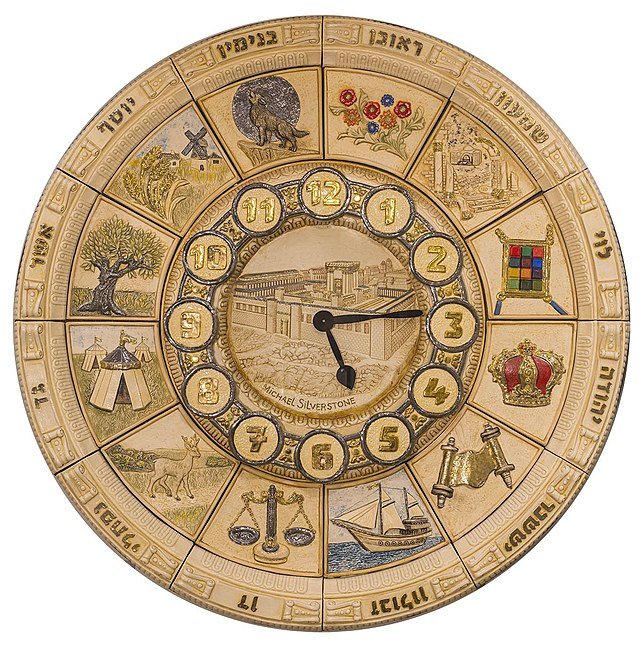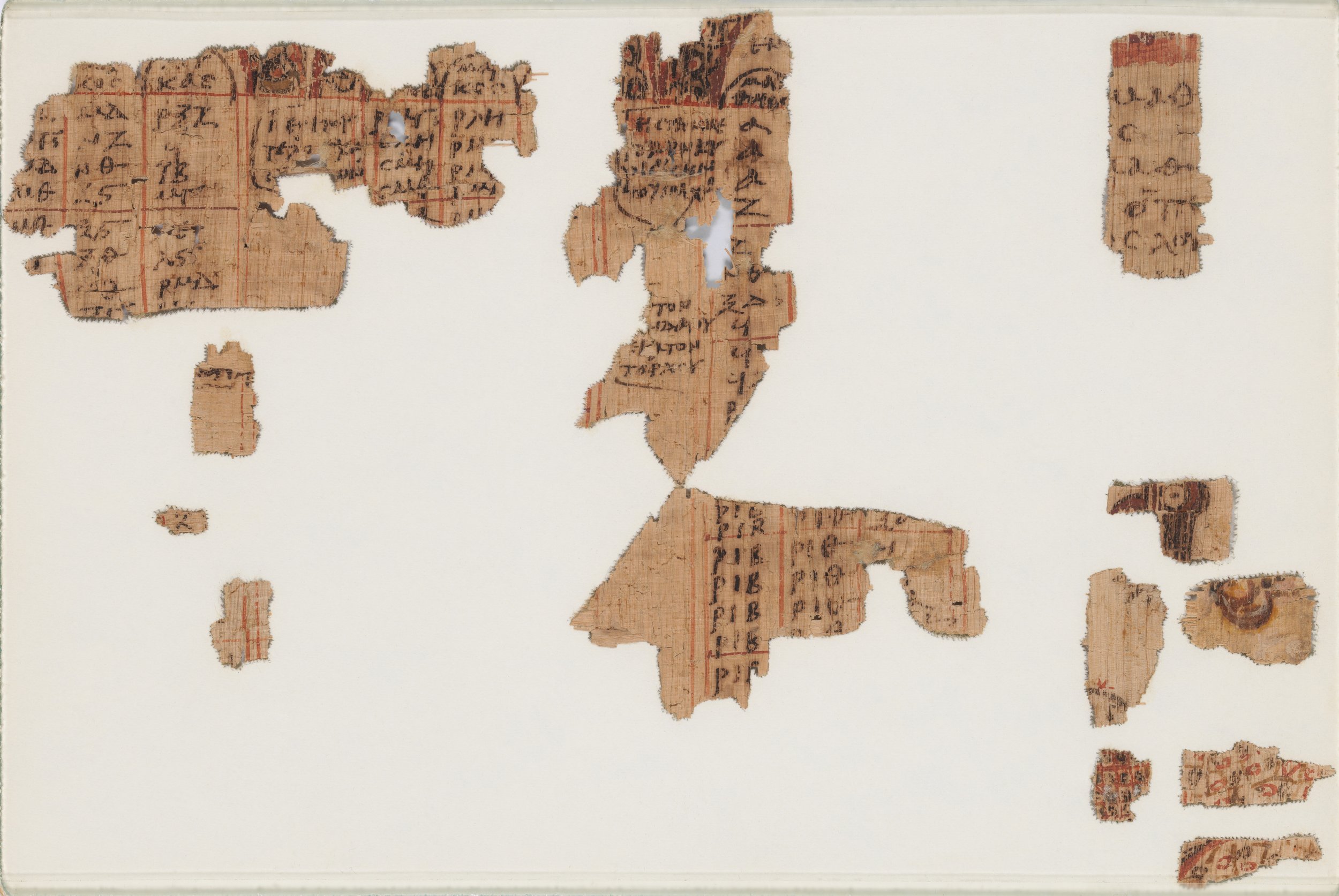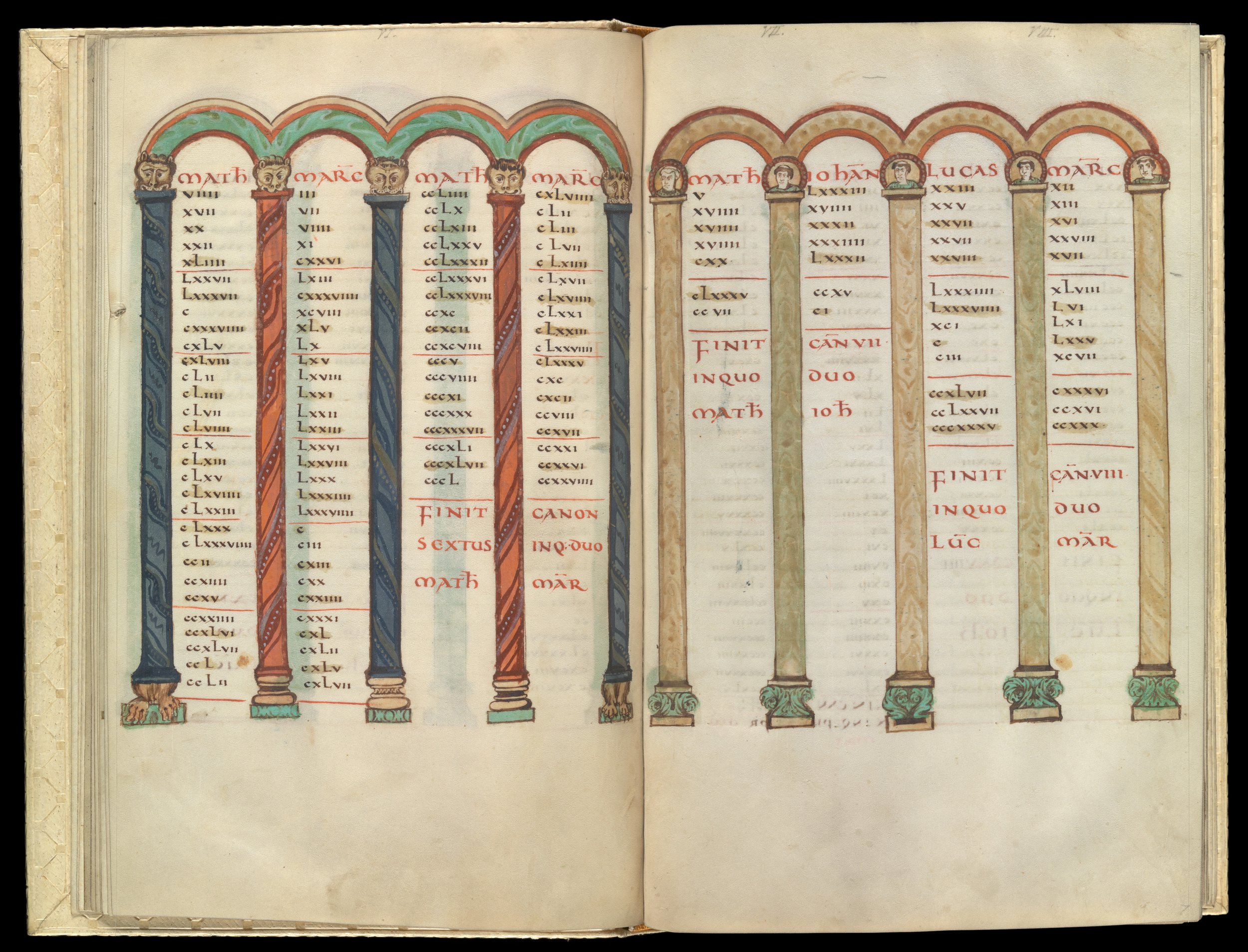Liane Feldman explores the process of developing her edition of P in The Consuming Fire (UC Press, 2023).
Read MoreRereading Reading Renunciation
How I Give Oral Finals
“I want to resist the impulse to see my students as numerical marks to be ranked against each other. Instead, I encourage their individuality, unique ways of seeing the world, and habits of thought to become partners in the evaluation process.”
Read MoreA Brief History of the Hebrew Israelites
A sculpted ceramic clock, by Michael Silverstone, depicting emblems of the twelve tribes of Israel surrounding a reconstruction of the Temple. Image courtesy of Wikimedia commons.
A sculpted ceramic clock, by Michael Silverstone, depicting emblems of the twelve tribes of Israel surrounding a reconstruction of the Temple. Image courtesy of Wikimedia commons.
You may not know it, but you live in a world full of Israels. If there aren’t groups claiming descent from the ancient Israelites on every continent, it is only for this reason – that Antarctica isn’t trying hard enough. And strange as it may seem at first blush, it really makes a lot of sense.
Read MoreMonopoly and Biblical Studies
As historical-critical scholars, we need to realize that we cannot be absolutely sure of our conclusions, and that like any discipline, they may change over time as the result of new evidence or new hypotheses that better explain old evidence...Yet—I know how uncomfortable these methods make many students from religious backgrounds. For that reason, in the very first class I introduce an image of a Monopoly board, and explain that my class is like the game of Monopoly.
Read MorePoetic Geography: Reading Eusebius’ Fourfold Gospel
Reading over Eusebius’s shoulder affords an opportunity to rethink what we are doing as Gospel readers.
Read MoreSimilar Things: Reflections On Eusebius The Evangelist
By naming Eusebius as an “evangelist,” however, Coogan asks scholars to take a further step and acknowledge that writing and reading are always already pre-determined by prior commitments and categories.
Read MoreEusebius, the Evangelist, and the Rabbinic Mapping of Knowledge
These paratextual tools, he shows, enabled the many excerpting, reorganizing, and compiling projects of late antiquity, the very literary features, in fact, that earned the period the reputation of intellectual decline in modern assessments.
Read MoreEchoes of Eusebius in Syriac
With Eusebius the Evangelist, Professor Jeremiah Coogan offers a vivid and illuminating portrayal of the Eusebian apparatus and its manifold afterlives.
Read MoreFive Initial Thoughts on Eusebius the Evangelist
While not based on a close study of a select group of manuscripts, Eusebius the Evangelist often centers the materiality of the text in its analysis, and encourages the reader to experiment with the Canons—easier said than done, of course, if one doesn’t have an ancient manuscript in one’s hands, but it’s possible to do makeshift experiments nonetheless.
Read MoreEusebius the Evangelist: Introduction
To the end of highlighting the far-reaching significance of the book, we have gathered a group of scholars who, while all working on late antiquity, specialize in a diversity of materials and languages.
Read MoreRabbis and the Reproduction of Species
Rafael Rachel Neis, Figures of Speech, pen and ink on paper, 11 in. x 17 in., 2020
Rafael Rachel Neis, Figures of Speech, pen and ink on paper, 11 in. x 17 in., 2020
“If we abide by these insights in our encounter with ancient sources, we find a (surprisingly?) queer world in which a human gives birth to a raven, a cow delivers a camel, mud generates mice, and fire begets the salamander.”
Read More"They Shall Teach Your Statues to Jacob": Priests, Scribes, and Sages in Second Temple Times
Dr. Steven D. Fraade wrote this article while on sabbatical in 1988. It was accepted for publication soon after, but the journal wanted substantial cuts due to the space constraints at the time. AJR is pleased to give this article a permanent home and hope it will inspire future work on this important subject.
Read MoreHow the Rabbis Taught the Jews (Not) to Read the Bible
Rebecca Sharbach Wollenberg introduces her new monograph, The Closed Book (Princeton, 2023).
Read MoreSBL 2022 Review Panel: Hell Hath No Fury
AJR is pleased to publish remarks delivered as part of a book review panel at the annual meeting of the 2022 Society of Biblical Literature in Denver. The panel was organized by members of the Disability and Healthcare in the Bible and the Ancient World steering committee.
Read MoreAJR Conversations | Hell Hath No Fury
As early Christian authors continued to build upon and intensify Roman carceral spaces they imagined a system of divine justice in which ever increasing forms of violence are sanctioned by God to elicit proper behavior.
Read MoreHell Hath No Fury: A Response
It goes without saying that I could talk for hours about any one of the questions that has been posed in this forum, but I will just share a few initial thoughts in response to each of the panelists.
Read MoreHell Bound Bodies No More: Unhoused, Disabled, and Incarcerated Bodies in the Ancient Imagination
In her work Henning proves herself to be the first real textual archaeologist of hell: she plumbs depths and asks questions that, with few exceptions, previous scholars did not.
Read MoreA Queer Tour of Hell
One of the many strengths of Henning’s book is the multiple references to contemporary practices and conversations, which highlight the importance of engaging the ancient and medieval tours of hell.
Read MoreWhere, the Hell?
For my part, I want to examine some of the evidence for the material realities of punishment in the Roman world, exploring a few spaces that bring archaeological and affective texture to the penal and carceral language informing tours of hell to which that Henning so insightfully points in her book.
Read More


















